#Via del Corso
Explore tagged Tumblr posts
Text
The Street of the Course, Rome Italy. ✴️

96 notes
·
View notes
Text

Via del Corso, Rome, Metropolitan City of Rome, Italy
Irena Carpaccio
8 notes
·
View notes
Text
There was no god of the bridge when the first log rolled into place, forcing water up and over its loose bark and dead branches. There was no god of the bridge when the first man heaved himself and all his earthly belongings into the river, clinging to the branches, scrabbling hand over hand until he reached the other side.
The god came later. It settled into place not all at once, but over time, becoming more aware with each crossing. The log was strengthened by a fresh tree felled for the purpose, lashed tightly together until boards could be hewn from yet another aged trunk. The god was beaten into the planks with each nail driven home, with each railing erected, with each tread of a boot on the flat, unpolished surface.
There is power in controlling access to a place. And the town which sprung up, one house, one shop, one road at a time across the river—well. The town’s only access to the outside world was by way of Main Street, which went over the bridge.
As trade commenced and travel increased, the god grew strong enough to know itself, to know its place and its people. It could move on, if it chose. It was strong enough to find a bigger town, a larger bridge, a more bustling trade route, but the god liked its rushing river. It liked the hardy, stubborn faith of the people in the town, who trusted the hands who built the bridge, who trusted the god.
So the god remained, satisfied and sated, guarding the crossing. Keeping its people safe from the current below, from those who would cross to the town with malice, from those who would steal away in the dark of night with that which did not belong to them.
And then came progress, marching in with heavy machinery, puffing and belching black clouds of smoke as they dropped heavy stones into the river, gouging and scraping at the soil and the sky. The new bridge connected the town to a great long highway, and quickly the townspeople realized how much faster, how much easier it was to use the new bridge, with its wide roadway and flat surface and elegant railings, than it was to use the old.
The god watched as they scrawled OLD in front of the blocky MAIN STREET letters on the weather-beaten sign secured to the corner of the bridge.
Traffic slowed.
As the days stretched into weeks, into months, into years, the god felt hunger for the first time since it understood that it existed. It began to consider its options.
It wasn’t a terribly old god, nor terribly powerful. It was content with its small bridge, and had no interest in reigning over the new monstrosity of a bridge cluttering up the skyline, redirecting the rushing flow of the river.
No. The god wanted no part of that.
The god could leave, it supposed. Try to find somewhere new before it succumbed to the place gods went when they were forgotten. But the water continued to course past the bridge’s struts, and the god did not want to leave. It had a job.
If the god left, and the bridge remained, who would keep travelers safe from the current below? Who would protect the town from those who crossed to the town with malice? Who would prevent those who steal away in the dark of night with that which did not belong to them?
No one.
And so the god remained, surviving on the footfalls of children who dared each other to cross its warping, rotting planks. It kept the children safe above the rushing of the water, and allowed trespassers and thieves to fall through the holes which grew larger every day.
It stayed. It protected. And it faded.
The first time Jake came, the sky was crying. Drizzling rain misted and dripped out of the clouds, lazily coursing through the moss and leaves twisted around the broken railings. The god didn’t know his name was Jake, then.
Then, he was just a boy, almost a man, with limbs he hadn’t yet grown into and a jaw sharpening through round baby fat, still clean of stubble.
He wandered down Old Main Street, silhouetted by the guttering streetlamps through the misty gloom. Curiosity was a rare enough sensation that the god blinked free from the groggy doze it found itself in most of the time. The boy’s shoulders hunched against the rain, his hands stuffed into his pockets. The god watched him come.
When the worn thin tread of a boot stepped onto its bridge, the god felt the boy’s weariness, the anger-turned-despair, and it wondered how someone so young could feel so strongly. He sat, this boy-almost-a-man, his legs dangling from the edge, boots just shy of the spray of the river below, though judging by the sodden color of the leather they couldn’t get much wetter.
Gentle fingers ran over the ridges of planks pulling at their fastenings. “I could leave this town,” the boy said, his voice cracking in the middle.
“You could,” the god agreed. The boy did not jump, did not startle. Just huffed a little laugh, leaned his forehead against the rail in front of him, and closed his eyes.
“Imagining voices now,” he muttered to himself. “Brilliant.”
They were quiet, for a time.
“I could leave,” the boy said again, quieter this time. “No matter that Ma wants me to go learn my letters, become a defender of the law. Could go make my fortune in the big city, find myself a wealthy patron of the arts.”
“What sort of patron would you wish for?” the god inquired.
The boy sighed. “Someone who could see,” he said, a soft yearning in his voice.
They sat awhile longer, until the boy began to shiver in his wet clothes. The god could not warm him.
“Give me your name,” the god said. “What can I call you?”
“You can’t have it,” the boy said, eyes shifting this way and that, searching for the voice though still half-certain it wasn’t real. “But you can call me…” he paused. “Jake,” he said finally. “You can call me Jake.”
Jake came shuffling down the road almost every week after he closed up shop at the local grocer. He brought a hammer and nails, fresh planks. He ripped out vines and cleaned off moss and repaired holes. He brought chalk, decorating the bridge with bright colors and fine shapes that the rain later washed away, as abstract and impermanent as designs fingerpainted into a cold window. The god became stronger.
But Jake’s despair only grew.
Jake did not want to choose between law school and leaving his home. He liked his job working for the grocer, the god learned. He liked painting murals on the walls, stripes on the roads. He liked being useful, he liked making beautiful things. More importantly, he liked creating perfect things, the kind of perfection that only came from personal, intimate awareness of the recipient.
He did not want to seek his fortune, find a patron, design great works for people he did not know, and who did not know him.
“I could leave this town,” he repeated one morning as they watched the sunrise, side by side. It was a mantra, a reminder, a plea. “Before she makes me go. I could leave.” The god heard the hopelessness in his voice. It saw Jake’s boots, worn thinner with every week gone past, until the god was certain Jake could feel each grain of the planks beneath his feet when he stepped onto the bridge. It felt the waning of the energy, the vitality, the curiosity and desire that pumped Jake’s blood through his veins.
“I could leave,” he whispered, but he stared down at the water, not out to the mainland beyond the bridge.
“Is that your wish?” the god asked gently.
“Yes,” Jake said. It was a lie. Jake did not give the god his name, but he gave his heart, his sweat, his tears, and, on one occasion with a particularly stubborn bit of ivy, his blood. The god knew his supplicant, and the supplicant knew his god, and they could not lie to one another.
In his heart of hearts, Jake’s deepest desire was that his mother support his dream of being a painter. The mother did not deserve her son, in the god’s opinion.
The god was musing darkly on this opinion when Jake slipped off the edge of the bridge.
Slipped, perhaps, was incorrect—Jake closed his eyes, a small smile pulling at his cheeks, and stretched his arms out to his sides before tipping himself right off the side toward the rushing, crushing, roaring water below.
The moment froze, Jake falling forward one tiny increment at a time, his smile never faltering. A paintbrush rested in his hand, fingers curled loosely around its stem.
No.
The god had a job. It would keep the travelers of this bridge from meeting their end in the current below. It would protect the people of the town from those who wished them harm, whether they came from within or without.
The god caught Jake in gentle arms and whisked them away.
Away, to the city, to the place Jake claimed to dream of but truly despised. Away from those who knew him yet hurt him, diminished him, propelled him into those cold waters. He could flourish in the city, despite his fears, despite his yearning for a mother who would never be what Jake needed.
They landed in the midst of a rain drenched square, bustling and loud and cold—the god staggered, if it could do such a thing, ripped as it was from its foundation, torn from its home, removed with such violence from its sworn reason for being. The world faded, gray, then black, and the last thing it saw was Jake, pulling himself up a lamppost, hand over hand, as water poured down his face.
Jake had a chance, now. And the god—the god’s choice was made.
It could rest.
Three years later
The man was tall, pale, with neatly coiffed hair and an expensive wristwatch. His suit fell in clean, crisp lines, and his shoes were shined within an inch of their lives.
“I was told you are an artist,” he said, looking around with a raised eyebrow. It was less of a sneer than an invitation, an opportunity to prove the accuracy of the title.
“I am,” Jake said, squaring his shoulders. “I have completed my apprenticeship, and am seeking a patron.”
“Hmm,” the man said, heels clicking against the floor as he walked to the edge of the room, inspecting the work Jake leaned or hung or propped, depending on the structural capacity of the wall. He stopped in front of a profile of a dancer, a popular style, and ran one slim finger down the simple, unpainted wooden edge of the frame. His hand stopped on the corner of a canvas tucked behind, which he pulled out, slowly then all at once. It was a landscape painting, small but painstakingly detailed, of an old bridge above rushing water.
“I am seeking an artist to join my household,” the man said without taking his eyes from the bridge. His finger no longer rested on the frame of the dancer, but rather traced, barely a breath of air between his skin and the canvas, over the spray of the water, each splashing droplet neatly detailed in two dimensions.
Jake tore his gaze from that finger, felt the ghost press of strong arms carrying him through space, and swallowed hard.
“This artist would wish for nothing, not supplies nor food nor a place to lay his head.”
“What sort—” Jake cleared his throat. “What sort of artist are you looking for?”
The man looked up from the painting and met Jake’s eye for the first time since he entered the gallery. He had nice eyes. Blue with flecks of brown which, from the scant few feet away Jake stood, matched the painted river’s muddle of colors.
“Someone who can see.”
fin
One day, when walking home from work, you make a mistake. You give a last kindness to a dying god, and in return, it grants a wish you never wanted granted.
6K notes
·
View notes
Text
Settimana Culturale alla MEM: Appuntamenti dal 7 al 12 ottobre 2024 a Cagliari. La Mediateca del Mediterraneo offre eventi multiculturali: laboratori, conferenze e presentazioni letterarie in via Mameli 164
La Mediateca del Mediterraneo (MEM) di Cagliari, situata al civico 164 di via Mameli, propone una serie di eventi culturali per la settimana dal 7 al 12 ottobre 2024.
La Mediateca del Mediterraneo (MEM) di Cagliari, situata al civico 164 di via Mameli, propone una serie di eventi culturali per la settimana dal 7 al 12 ottobre 2024. L’ampia offerta include laboratori di artigianato, conferenze sulla sicurezza, gruppi di lettura e presentazioni di libri, offrendo un’ottima opportunità per immergersi in un contesto multiculturale e partecipare attivamente alla…
#arte del filet#artigianato sardo#artigianato tradizionale#Cagliari#Cagliari eventi#conferenze Cagliari#conferenze sulla sicurezza#corso di filet#Cultura#Eventi culturali#eventi ottobre 2024#formazione sicurezza#Francesca Agus#gruppo di lettura#Incontri culturali#laboratori artigianali#laboratori creativi#lettura condivisa#Mediateca del Mediterraneo#MEM appuntamenti#MEM Cagliari#MEM eventi#mostre e laboratori Cagliari#Presentazione libri#promozione culturale#ricamatrici Sant&039;Efisio#scrittrici sarde#Spazio Eventi MEM#Un raro esemplare#Via Mameli
0 notes
Text
La vicenda che ha visto la morte del povero ragazzo costretto a vivere in un garage perché mandato via da una casa di un attivista di un centro sociale impegnato in manifestazioni contro gli sfratti, può effettivamente impressionare chi non conosce l'antropologia dell'attivista comunista. Io la conosco molto bene e devo dire che nel corso degli anni i trattamenti più spietati nei confronti di dipendenti, sottoposti e servi vari sono sempre stati perpetrati da loro, mai da biechi "padroni" politicamente schierati a destra. Ho sempre notato una netta prevalenza degli ex attivisti dei movimenti operai del Sessantotto, protagonisti immancabili di cause di lavoro per contributi non pagati o licenziamenti umorali che stento a pensare calati nella corte di Versailles. Sono persone così. Non sono come noi.
@boni_castellane
41 notes
·
View notes
Text
never once have i stopped thinking about this design
how much am i regretting not getting anything from marimekko? yes
5 notes
·
View notes
Text
Per tutti i nuovi iscritti, ripropongo qualche racconto 😉
GINEVRA
Qualche giorno fa avevo un appuntamento alle 17, davanti ad un albergo di cui non ricordo il nome.
Non ci sono mai arrivata, è saltato tutto all'ultimo momento.
Ultimamente va così:
belli, passabili, simpatici, discretamente o altamente interessanti, poco importa.
Tanto, una scusa per non incontrarli, la trovo sempre. Mercoledì però ero convinta e preparata, con il baby doll e le autoreggenti.
Mi sono eccitata nel bagno dell'ufficio a pensare al momento in cui finalmente, qualcuno che nn fosse mio marito, fosse riuscito a violare questo tempio
Non succede da tempo ormai e ho pensato che l'ingegnere , dopo anni di tentativi, avesse finalmente vinto la bambolina.
Pensando a lui mi sono accarezzata da sopra le mutandine... carezze fugaci, giusto per sentire la prominenza delle grandi labbra, aspettando che il liquido della mia fica bagnasse la stoffa
Mi piace andare in giro così umida, mi piace pensare che se ne percepisca l'odore
Fatto sta che, alle 14,30, mi arriva un messaggio che, per qualche casino sul lavoro, l'Enrico non potrà raggiungermi.
Contenta un cazzo ovviamente, ma visto che tanto a Torino ci dovevo andare ugualmente per una cena al Magorabin, sono partita con la mia valigia di porche voglie verso la bella città sabauda.
La delusione non ha spento i miei istinti, c'era nell'aria tempesta ma con ancora il caldo estivo che mi faceva sudare le cosce e irrigidire i capezzoli
Ho camminato da corso San Maurizio con il Po alla mia sinistra, verso la Gran Madre, per andare a prendere un gelato e sorridevo ogni volta che il vento apriva lo spacco del mio vestito verde, troppo leggero per contrastarne la forza
Le cosce scoperte, le autoreggenti in evidenza, gli uomini che guardavano dalle macchine mentre attraversavo la strada... Umidità, vento, sguardi liquidi e umori lungo le calze velate. Eccitata come un adolescente al primo ditalino, mi sono seduta col mio gelato su una panchina di cemento di fronte al Gran Bar di Corso Casale, vicino alla più classica delle fontanelle della città, quella con la testa di toro
Ho leccato quel gelato pensando all'ultima volta in cui avevo avidamente succhiato e portato un cazzo ad esplodermi in bocca .
Troppo tempo
Mi sono avvicinata alla fontana per togliere dal vestito una macchia di cioccolato e con noncuranza l'ho quasi alzato completamente, aspettando che i ragazzi seduti al chiosco vicino si accorgessero di me. Gomitate, risatine, chissà quante volte mi avranno chiamata puttana.
Mentre maledicevo la mancanza di un amante che mi aspettasse a cazzo duro in un posto qualunque, è arrivata la pioggia e a passo svelto sono tornata verso via Vanchiglia , dove avevo la macchina.
Mi stavo bagnando, ma non ho corso e questo mi ha permesso, lungo il tragitto, di notare un piccolo negozio di abbigliamento vintage
Mi sono fermata e un cartello invitava ad entrare liberamente per sbirciare tra gli abiti appesi
Varcando la soglia ho sentito odore di incenso e di rose e mi sono sentita subito in un ambiente caldo e famigliare
Quella che poi ho saputo essere la proprietaria, è arrivata da una porta che dava su un cortile interno.
Ho notato il suo vestito in chiffon color pesca, lungo fino ai piedi, tanto lungo da doverlo tenere alzato mentre camminava. Sembrava una tipica damigella di quei matrimoni americani che si vedono in tv. Le ho sorriso istintivamente guardandole i piccoli seni non costretti da intimo
Capelli corti come i miei ma mossi, ornati da un piccolo fiore all'altezza dell'orecchio, occhi grandi e scuri, una bocca sottile e dolce nascondeva denti bianchi e perfetti
Mi ha invitata a guardare e chiedere, se ne avessi avuto bisogno...
Ho passato le mani tra gli stendini, ma continuavo a pensare alle sue forme sotto la stoffa, al culo importante, ad una vita non troppo sottile su un corpo comunque armonioso
Mi stavo bagnando ed ero a disagio e quando mi sono girata lei mi stava fissando
"il vestito che hai in mano ti starebbe benissimo, dovresti provarlo!"
Non so se sia stata la sua capacità professionale o la voglia di spogliarmi che mi accompagnava da tutto il giorno, ma ho chiesto dove fosse il camerino e sono stata contenta di trovarlo spazioso e accogliente, con un grande specchio
Mentre mi preparavo l'ho sentita camminare nervosamente avanti e indietro,ma quando ho scostato le tende, ho trovato subito i suoi occhi. Prontamente ha iniziato a sistemarmi il colletto, mi ha toccato le spalle "lo sapevo, lo porti benissimo"
Ha aperto un bottone e poi un altro ed io sono rimasta immobile senza sapere cosa fare, mi sentivo come una bambola nelle mani di una bambina che gioca a fare la mamma
Ma tra le gambe c'era la donna che sono. L'ho sentita pulsare ed eccitarsi.
"Ecco, lascia che si veda il tuo décolleté , è perfetto"
Ha preso altri vestiti e mi ha chiesto di provarli. Il suo tono era perentorio ma dolce, un no non era contemplato ed io, come un automa, ho ubbidito.
Mentre indossavo il secondo abito ha azzardato aprendo le tende, dicendo di voler togliere ciò che non serviva più e mi ha vista in intimo, con le calze a balza larga che circondavano le mie cosce.
Sono rimasta immobile, imbarazzata, ma il suo modo di guardare e di sorridere ha sciolto le mie inibizioni
"ti aiuto se vuoi"
"si, per favore"
È entrata ed io ho sentito il suo profumo di rose, e l'inconfondibile odore dell'eccitazione
Mi ha aiutato a tirare su il vestito e mi ha sfiorato il collo con le mani, poi le spalle, la schiena
Cristo, volevo solo che mi toccasse e palpasse
Le ho sorriso guardandola dallo specchio e prendendolo come un invito mi ha girata e mi ha baciata
Un bacio dolce e bagnato che mi ha improvvisamente reso consapevole di quanta tenerezza io avessi dovuto rinunciare in passato, in nome di relazioni che spesso mi avevano lasciato sola e inerme, in balia delle più luride pulsioni.
Mi ha spinta contro lo specchio e pressando il suo corpo sul mio mi ha allargato le gambe con un ginocchio. Ero fradicia e vogliosa e lei lo sapeva
Ha fatto scivolare il vestito e si è inginocchiata davanti alle mie mutandine che piano piano ha sfilato via
Ho pensato a come fosse possibile tutto ciò...mesi a chattare su inutili siti di incontri e poi la mia ricompensa era lì, in un piccolo negozio di abiti vintage..
Ha annusato il mio pube, il mio pelo, ci ha strofinato il naso, allargato le mie grandi labbra con le dita ed è rimasta a guardarla
Ci ha giocato con la lingua mentre iniziavo a mugolare, leccava il mio clitoride, lo succhiava con avidità, infilava le dita dentro l'orifizio grondante umori biancastri e se le leccava con foga
Improvvisamente ha smesso ed è corsa via. Per un attimo smarrita mi sono seduta sullo sgabello del camerino Ho sentito chiudere a chiave la porta del negozio ed è tornata da me
"Eccomi, non puoi più scappare"
Ma chi cazzo voleva muoversi da lì!
L'ho avvicinata a me e ho appoggiato la testa sul suo ventre, ho alzato il vestito fino al suo sesso, anche lì completamente libero dall'intimo.
Che fica meravigliosa, completamente nuda ed esposta
L'ho accarezzata, ma è il suo culo che volevo, morbido ed invitante.
Le ho chiesto di girarsi, di chinarsi per me e ho affondato la faccia tra quelle natiche
Ho annusato forte e poi la mia lingua è corsa all'esplorazione di quel pertugio perfetto, che sapeva di sapone e culo
Leccavo ed infilavo la lingua sempre più in fondo, come un piccolo cazzo entravo ed uscivo mentre la sentivo ansimare, colare, sentivo il gusto di tutta la sua voglia
Ha iniziato a masturbarsi e sentivo il rumore delle ditta fradice
La volevo mia, volevo godere con lei guardandola in viso
Lho accompagnata sul tappeto, supina, le ho aperto le gambe e mi sono posizionata sulla sua fica in un incastro perfetto
Abbiamo iniziato a muoverci e a strofinare i nostri sessi, sempre più veloce
Dio, l'odore che emanava quell'erotico ballo... Sudore, fica, shampoo per capelli, trucco, culo
Ho goduto nell'attimo in cui diceva "Vengo cazzo!"
Siamo esplose insieme e la sua fica ha spruzzato sulla mia, mentre il suo corpo pareva in preda a convulsioni
Mi sono abbassata e ho raccolto con la lingua ciò potevo, gustando tutto il suo essere
Poi ho raggiunto la sua bocca e sporca di umori l'ho baciata morbidamente, mischiandomi alla sua saliva
Mi ha guardato e ha riso e ancora ansimante mi ha detto
"Ah, piacere, io sono Ginevra"
Al Magorabin non ci sono mai arrivata.
44 notes
·
View notes
Text
Ho imparato a non forzare, a non forzare più niente.
Adesso lascio che le cose si lascino per corso naturale,
lascio che le persone mi lascino, lascio lasciarmi.
Non forzo più, non mi metto più in mezzo.
Con l’età ci si ammorbidisce,
merito anche del vento che si prende in faccia, leviga e smussa.
Non forzo un amore, ognuno è libero di scappare via
dai miei battiti cardiaci buoni, non forzo più un brindisi,
tutte le feste possono benissimo alzare i calici lontane dai miei auguri.
Non forzo più, non forzo più niente,
adesso scorro. Segni particolari: fiume.
[gio evan]
77 notes
·
View notes
Text
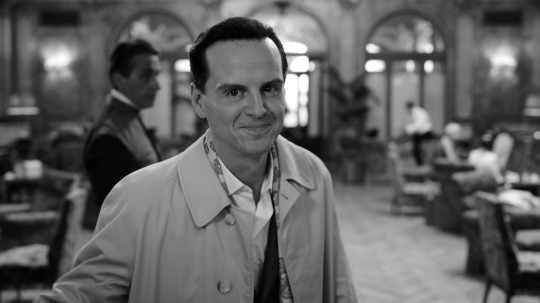
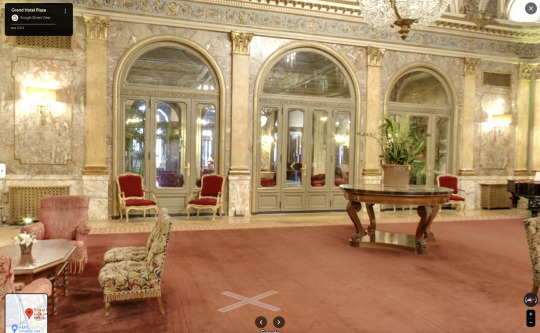
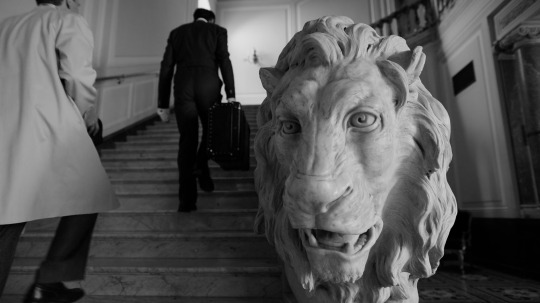
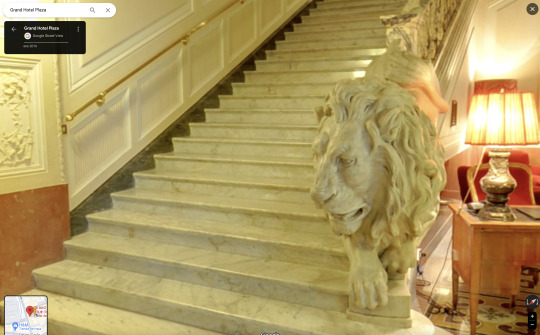
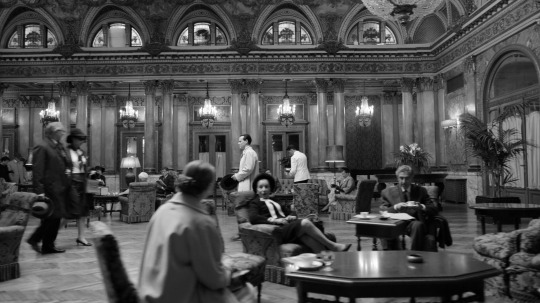
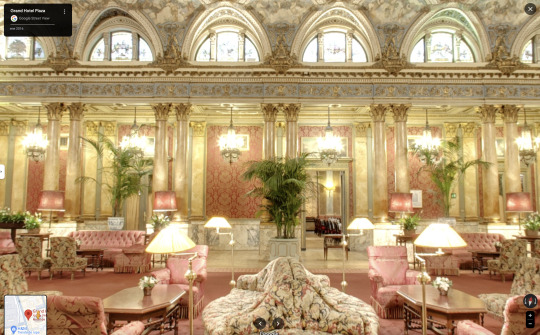
Ripley Steven Zaillian. 2024
Hotel Excelsior Via del Corso, 126, 00186 Roma RM, Italy See in map
See in imdb
Bonus: also in this location
#steven zaillian#ripley#lion#statue#sculpture#stairs#hotel#rome#andrew scott#series#lazio#italy#cinema#film#location#google maps#street view#2024
79 notes
·
View notes
Text

Florence, Alley in Via del Corso
Piergiorgio Branzi, 1954
217 notes
·
View notes
Text
IL NASO

Il 10 dicembre '44 Forlì era già libera da un mese. Dopo aver spinto i tedeschi oltre il fiume Montone, i gappisti hanno atteso l’ingresso in città degli Alleati, con un reparto scozzese in prima fila. L’illusione della pace viene interrotta dal passaggio di due aerei tedeschi, che sganciano sulla città bombe ad alto potenziale, capaci di esplodere poco prima dell’impatto al suolo, sbriciolando gli edifici senza creare crateri. Sono bombe nuove, mai viste, che vengono testate per la prima volta proprio qui. Gli obiettivi sono la ghiacciaia Monti, deposito logistico dell’esercito britannico vicino alla chiesa di San Biagio, e il palazzo della famiglia Merenda, in corso Diaz, quartier generale Alleato. Il primo ordigno sbaglia e colpisce la chiesa quattrocentesca polverizzando le opere di Melozzo e Palmezzano, portandosi via 20 vite umane. La seconda va a segno e travolge decine di inglesi e una famiglia romagnola. Oggi si nota ancora la discrepanza tra i palazzi storici di corso Diaz e gli edifici “nuovi” che hanno riempito i vuoti dovuti all’esposione. Uno di questi è il teatro Diego Fabbri, che qualche vecchio forlivese chiama ancora Astra, dal nome del cinema inaugurato nel '47. Di San Biagio si è salvato il sepolcro di Barbara Manfredi, moglie di Pio III Ordelaffi, ma il naso si è staccato e perso tra le rovine. Lo studioso Pietro Reggiani lo ritrova dopo alcuni giorni sotto le macerie, spostando ogni centimetro di polvere con un bastone da passeggio.
30 notes
·
View notes
Text
Nasce la professione di "certificatori di reputazione", vale a dire laureati o diplomati che nell'era di internet e di profili "fake" sono in grado di alimentare con dati certi un innovativo algoritmo "umanizzato" per misurare abilità, competenze, meriti e onestà di persone fisiche e giuridiche.
Al via il primo bando per accedere alla formazione, gratuita, di questa nuova professione rivolto esclusivamente a donne: 214 (30 delle quali vittime di violenza). Il bando è finanziato dal Fondo per la Repubblica Digitale-Impresa sociale. Il termine per presentare la domanda è il 15 marzo (www.lumsa.it/odg).Si tratta di una sperimentazione ideata da Mevaluate Holding e Crop News.
L'ateneo Lumsa è il soggetto responsabile coordinatore dei rapporti di partenariato con il Fondo per la Repubblica Digitale che ha selezionato e finanziato il progetto e che entro il 2026 impiegherà 350 milioni di euro secondo la legge 233/2021 (attuazione del Pnrr e prevenzione delle infiltrazioni mafiose).
Il bando é riservato a donne fra i 19 e 50 anni, sia disoccupate che inoccupate ma anche dipendenti di operatori economici interessati ad accrescerne abilità e competenze digitali in funzione di migliori condizioni contrattuali. Ogni partecipante al progetto potrà beneficiare di 2.970 euro in formazione online per 224 ore e ricevere un tablet e sim dati Coop voce mentre al termine uno smartphone nel contesto di un percorso di inserimento lavorativo di 480 ore in collaborazione con 7 partner sostenitori, enti privati e pubblici, fra i quali Agens, Confindustria, diversi ordini professionali.
Le 214 donne che seguiranno il corso otterranno l'abilitazione a operare in esclusiva sulla piattaforma digitale Italia Virtute per la qualificazione reputazionale documentata e tracciabile di individui e organizzazioni grazie al rating reputazionale elaborato dall'«algoritmo umanizzato» (trasparente, inclusivo e imparziale) in proprietà di Mevaluate Holding. Sarà così possibile mettere in valore e misurare oggettivamente abilità, competenze, meriti e onestà. Mentre perdono finalmente l'anonimato illeciti e inadempimenti.
----
Non so se ridere o piangere..."algoritmo umanizzato". Orwell ha fatto troppi proseliti. Quindi chi non si allinea al pensiero unico dominante avrà una reputazione pari a zero?
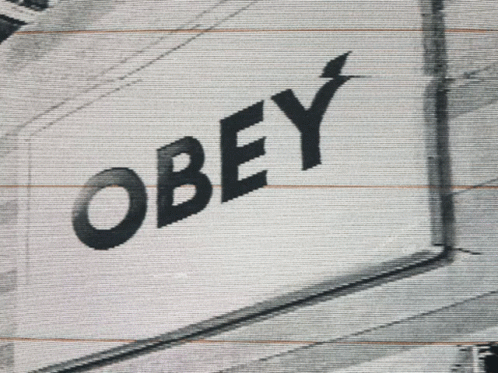
42 notes
·
View notes
Text
Palermo corto
Kezdjük a legfontosabbal:

Palermoba repülve érkezik az ember, a Punta Raisi (újabb nevén Falcone e Borsellino reptérre, ők államügyészek voltak, akiket kivégzett a mafia '92-ben).
A városba három módja van bejutni, vonat vagy busz, kb 1 óra, kb 6€ mindkettő, vagy iránytaxi, 8€. A buszterminál az épületből kilépve jobbra van, a vonat lenn, a föld alatt. Félóránként járnak. Mind a főpályaudvarhoz érkezik (Palermo centrale). A pályaudvarról kilépve egyenesen a via Roma nyílik, hosszú, zajos, forgalmas út (elején a Lidl, három nagy pálma előtte),

attól pár száz méterre balra vele kb párhuzamosan a via Maqueda, a helyiek Corsonak mondják, elméletileg gyalogos. Az elméletileg azt jelenti, hogy itt az egyirányú utca ismérve az, hogy kevesebben jönnek szembe. A kettő közt terül el a történelmi központ (Centro Storico di Palermo), tekergős, szűk sikátorok szövevénye. A legismertebb látnivalók a Corsoról érhetők el, a négyszökőkutas térről (Piazza quattro canti) balra fel a Porta Nuova felé az arab-normann katedrális (Cattedrale),

a Corson tovább a Teatro Massimo. Bármerre jár az ember, szinte minden utcában eléáll egy fantasztikus palazzo a kora középkorból vagy reneszánszból, egy Santa Maria della valami templom, leültem egy lépcsőre, és kiderült, hogy egy 12. században épült rózsaablakos erődtemplom lépcsőjén ülök. Van aztán a Kapucinusok katakombái, ahol rég meghalt szerzetesek vannak mumifikált állapotban, nekem kicsit extrém. Strandja nincs a városnak, az északra fekvő Mondellohoz ki lehet jutni városi busszal. Vasárnaponként (domenica) kirakodóvásár van a Corso feletti piac folytatásaként 100ezer négyzetkilométeren. Ahogy régebben, egy Schenker-gyűjtő rakománynál mondtuk, minden van ott, jézuskától géppuskáig.

de nem vagyok útiköny-író, minden megvan az interneteken, jobban, bővebben
kaják a teljesség igénye nélkül:
Arancine - töltött rizsgolyó, sokféle, legkedveltebb a ragus, sajtos, spenótos, sonkás-mozzarellás, pisztáciás, és még ezerféle. A rizsgolyó közepébe gyúrják a tölteléket, aztán az egészet panírba forgatva olajban kisütik. Jó esetben öklömnyi méretű, 1-5€. Pane con milza - lépes szendvics, borjúbelsőség, jellemzően lép, esetleg tüdő, csíkokra vagdalva, faszénen sütve. Stigghiola - nyárson, parázson sült báránybél, ahány, annyiféle fűszerezésű, kis máj is lehet benne. Panelle e crocche - mentás krumplikrokett és csicseriborsó faszénen, zsemlefélébe (panini, ciabattini stb). Cannolo - ropogós tésztacsövek, amelyekbe ricotta alapú krémeket töltenek, csokis, pisztáciás, mogyorókrémes meg még százféle, nem feltétlenül tömény édes. Paninik, szendvicsek elképzelhetetlenül széles, helyben frissen készült választéka.

Ezek a palermoi specialitások, de természetesen ezeken kívül minden olasz kaja van, pizza, pasta, lasagne, ravioli, tortellini stb. Enni sokfelé lehet, ajánlom a piacokat, az egyik a Corso elején a boltíves kapu után kezdődik, a másik a Teatro Massimo felett 200 méterre a Mercato del Capo. Minden IS van, csak rámutatsz egy körbetekert salsicciara, egy szelet vörös tonhalra, egy befűszerezett padlizsánra, egy tetszetős halra, egy megnyerő polipkára, és már dobják is rá a parázsra. Helyi ital valami ánizsos cucc, nem ugrik be a neve, kávéba is öntik, sajnos a szagától is elfutnék. Sör, bor, Aperol mindenhol van. Cafe, cafe macchiato 1-1,20€, cappuccino 1,80-2€.








Azt már ugye, hozzá sem kell tennem, hogy: "itt is csak házak vannak, meg emberek".
55 notes
·
View notes
Text
Nei giorni scorsi molti giornali hanno abboccato a una notizia falsa e viceversa non hanno pubblicato una notizia verissima, benché poco conciliante con l'allarmismo sul famigerato surriscaldamento climatico.
La notizia falsa, per riprendere un titolo di Repubblica, è questa: «Everest, l'effetto macabro dello scioglimento dei ghiacci: riaffiorano centinaia di cadaveri». Non è vero, non sta riaffiorando niente: anche se è verissimo (come ha scritto e titolato correttamente Il Giornale) che è in corso «una spedizione per recuperare i corpi degli alpinisti».
Invece la notizia vera, snobbata da tutti, è che i rilievi annuali dei principali ghiacciai del Trentino e in parte della Lombardia (l'Adamello) hanno evidenziato che le coperture nevose stagionali, quindi le probabili formazioni di nuovo ghiaccio, sono decisamente cresciute: quindi presto cresceranno anche i ghiacciai, a meno che quest'estate non si presentino improbabili temperature da deserto iraniano.
Facci, non Tozzi in conflitto di interessi, debunka le FAKE NEWS per boccaloni, via https://www.ilgiornale.it/news/politica/i-ghiacciai-delle-alpi-cresciuti-nascosto-2340571.html
41 notes
·
View notes
Text
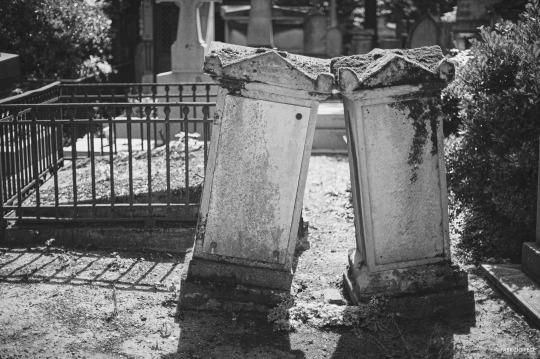
“forever close” photo by Fabrizio Pece (tumblr | 500px | instagram)
Nel cuore di una cittadina senza tempo, dove il grigio delle strade si fonde con il grigio del cielo, c'è una storia d'amore che resiste all'implacabile corso del destino. Le vite di Alex e Morgan si intrecciavano tra i vicoli stretti, un'amicizia che si sviluppò in qualcosa di più, un sentimento che sfidava la monotonia delle giornate grigie.
Alex, un lavoratore locale, e Morgan, una mente creativa senza un posto fisso nel mondo, si scoprirono l'un l'altro in un piccolo bar buio. Il loro amore crebbe nell'oscurità di strade poco illuminate, dove le luci pallide delle insegne creavano un'atmosfera di mistero e desiderio. Ma come talvolta capita, la vita ha avuto una strana maniera di chiedere il conto.
In una fredda notte d'inverno, Alex e Morgan persero la vita in un incidente che spezzò le loro storie ancor prima che potessero scrivere il loro epilogo. Le loro famiglie, spesso spartite da vedute diverse, si trovarono unite dalla stessa tristezza e rimpianto. Troppe parole non dette, troppe emozioni represse, ora sprofondavano nelle tombe di due anime che avevano trovato il loro rifugio l'una nell'altra.
Le loro tombe erano inclinate, appoggiandosi l'una all'altra come se la morte avesse finalmente concesso loro il conforto negato dalla vita. La pietra fredda divenne il testimone di un amore che, sebbene interrotto prematuramente, continuava a vibrare nell'eternità. Nelle notti tranquille, quando la pioggia scivolava via senza rumore, si diceva che le anime di Alex e Morgan si ritrovassero, non più limitate dai confini terreni.
#graveyard#france#graves#bnw#cemetery#grave#death#photography#graveyardphotography#streetphoto#cemeteries#bw#gravestone#history#art#lensblr#original photographers#photographers on tumblr
73 notes
·
View notes
